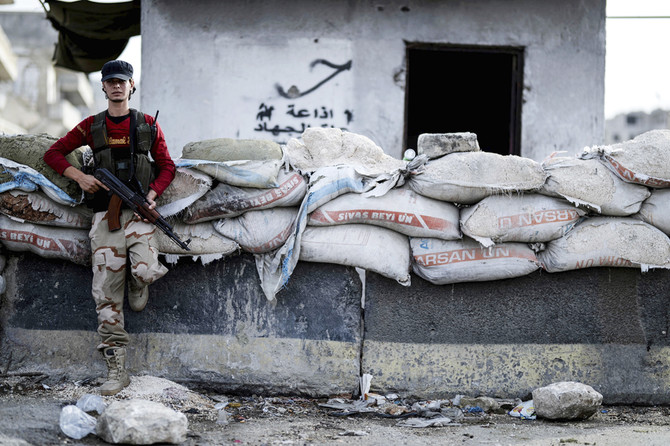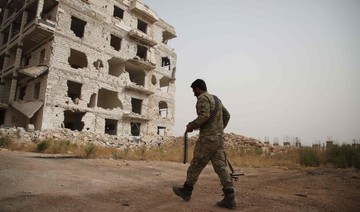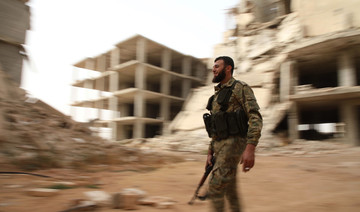ANKARA: Turkish President Recep Tayyip Erdogan, German Chancellor Angela Merkel, French President Emmanuel Macron, and Russian President Vladimir Putin are expected to attend a critical four-way summit on Syria in Istanbul next Saturday.
They will discuss recent developments in the war-torn country as well as projections for a political settlement.
Experts have underlined the importance of this summit in providing a strong push for key EU countries to work together with regional players to end the years-long conflict in Syria as it will gather the four countries’ leaders at the highest level.
The summit will focus on the recent developments in the opposition-held northwestern province of Idlib, and the parameters of a possible political settlement.
The ways for preventing a new refugee inflow from Idlib into Europe via Turkey, which is home to about 3.5 million Syrian residents, following a possible offensive by the Assad regime will also be raised as a topic that mainly concerns France and Germany and pushes them to work more closely with Turkey and Russia.
The summit will also aim at “harmonizing joint efforts for finding a lasting solution to the conflict,” presidential spokesperson Ibrahim Kalin announced on Friday.
Germany and France welcomed the Turkey-Russia deal on Idlib that had set Oct. 15 as the deadline for removing all radical groups from a demilitarized zone in the province. Although the withdrawal of some opposition groups from the zone has not been accomplished in due time, Ankara and Moscow have agreed to extend the deadline for Idlib, which is still a strategic area where the opposition holds out.
“Turkey and Russia want the status quo for Idlib. Although the jihadists have not withdrawn from the demilitarized zone, Russia is turning a blind eye,” said Fabrice Balanche, an associate professor and research director at the University of Lyon II.
“Turkey will make some efforts to save face. Turkish proxies have withdrawn because Turkey pays wages, so they must obey, but for the jihadists it is more complicated,” he told Arab News.
According to Balanche, without the complicity of Turkey, the Syrian regime cannot take over the north of the country.
“In exchange, Turkey wants a buffer zone in the north, all along its border. The main objective is, of course, to eliminate the Syrian Kurdish YPG from the border as it has already done in Afrin. A secondary objective is to protect its opposition allies and the Turkmen minorities, many in the province of Idlib but also between Azaz and Jarablus,” he said.
But the summit also shows that these four countries need each other in the Syrian theater as each of them has stakes regarding the settlement of the crisis.
Emre Ersen, a Syria analyst at Marmara University in Istanbul, said the main goal of the summit is to provide a major diplomatic boost to the ongoing Astana and Sochi peace processes, which have so far been led mainly by Turkey, Russia and Iran.
“A second and maybe even more important goal is to include France and Germany in the reconstruction efforts in Syria once the civil war is over,” he told Arab News.
Considering the cost of the reconstruction, estimated at about $400 billion, Ankara, Moscow and Tehran are not ready to take this enormous financial burden without the financial support of the West, Ersen said.
“Both Paris and Berlin hope that Ankara’s ongoing efforts to prevent a humanitarian crisis in Idlib can be successful. If the settlement in Idlib does not work, everybody is aware that this may lead to a big refugee crisis for both Turkey and Europe once again,” he added.
Martina Fietz, deputy spokeswoman for the German government, told a news conference in Berlin that her country is also hopeful about the forthcoming summit’s potential contribution to the stabilization of Idlib’s de-escalation zone.
“Progress in the UN-led political process, in particular the commencement of the work of the constitutional commission, will be discussed,” she said.
The chief foreign policy advisers of the quartet have met in Istanbul in recent weeks to discuss the agenda of the summit.



























